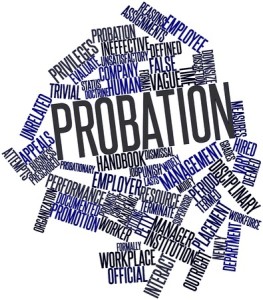 If you are facing charges for a crime, probation could be the good news you’re looking for. While it still isn’t an ideal situation, probation serves as a jail sentence alternative so you can maintain as much normalcy as possible in your life.
If you are facing charges for a crime, probation could be the good news you’re looking for. While it still isn’t an ideal situation, probation serves as a jail sentence alternative so you can maintain as much normalcy as possible in your life.
What is Probation?
Rather than going to jail as punishment for a crime, probation allows the person convicted of a crime to remain in the community. The terms of probation are set forth by the court and usually include required community service time, consistent meetings with a probation officer, and legal behavior for the duration of the probation.
Probation can last any amount of time, though it’s typically up to three years. Certain drug and sex offenses can earn a longer probation timeline.
Violating Probation
Life isn’t perfect, and probation violations do occur if any of the probation conditions are broken. Violations are handled by the probation officer; some are willing to offer warnings, while others immediately require a probation violation hearing.
If a judge determines that probation has indeed been violated, he can add new probation terms, impose hefty fines, or even revoke probation altogether. Most states do allow probation violation convictions to be appealed and potentially overturned in the court erred or if the conviction was made without enough evidence.
Ending Probation Early
Good behavior is often rewarded, and probation is no exception. Most states allow applications for early release from probation. A judge reviews the case and makes a decision. Most applicants who successfully shorten their probation terms have served a third of probation time, completed all classes or community service, cleared all fines, and maintained model behavior through the duration of the probation.
What About Parole?
Parole is the same concept, but in a different application. While probation helps to avoid prison altogether, parole allows a prisoner to re-enter the community after serving a portion of a prison sentence. Parole also comes with a list of requirements and terms, just like probation.
Of course, only an attorney can guide you through your options with expert legal advice.

 877-ESPO-LAW
877-ESPO-LAW


